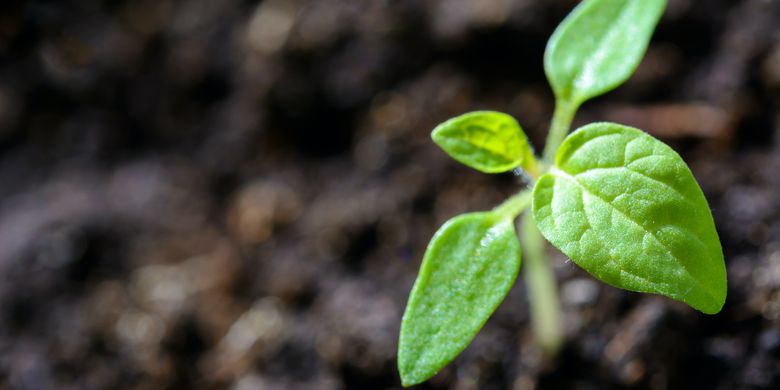KOMPAS.com – Soil is a very important biotic factor in supporting life on Earth.
Big planets like Jupiter and Saturn don’t even have land. But the Earth has land that can grow various plants, become a place for animals to live, and also human life.
In the soil, live a variety of microorganisms. Soil microorganisms are all things small animals that live in the soil.
Example soil microorganisms are mites, insect larvae, earthworms, termites, ants, beetles, algae, cyanobacteria, fungi, collembola, nematodes, and protozoa.
All these microorganisms play an important role in supporting life on Earth. Here’s the explanation:
The main role of soil microorganisms is the decomposition of dead organic matter. Living things such as plants and animals that die in nature do not bury them, it is the task of soil microorganisms to decompose them into organic matter. This is why in the wild there is no accumulation of carcasses of animals or plants.
Also read: Why Are Soil Pollutants In The Form Of Organic Substances Easily Blended With The Soil?
Microorganisms such as worms, ants, nematodes, and other insects will break down living things that have died into smaller fragments.
Bacteria and fungi then begin to break down the dead material by breaking carbon bonds, releasing CO2, small molecules, organic molecules, and releasing nitrogen into the soil.
Apart from being chemically decomposed by bacteria and fungi, termites play an important role in wood decomposition.
Termites feed on the dead wood of the soil so that they do not cover the forest floor. The forest floor is clean from dead organisms, allowing new plant shoots to grow and develop.
- Plant growth booster
Reporting from Intermountain Herbarium, putrefaction by bacteria and fungi releases nitrogen from the bodies of dead living things into the soil.
Nitrogen is a substance that plants need to grow. Soil with a high nitrogen content, the plants that grow on that soil will be fertile.
The presence of microorganisms such as worms, ants, algae, and other insects can loosen the soil.
Also read: Soil Conservation: Definition and Methods
Loose soil allows more oxygen to enter than compact soil. So that plant roots can get room to grow and get water.
Oxygen also plays an important role in accelerating the decomposition of living things that have died and the release of nitrogen to the soil.
Microorganisms also help the absorption of nutrients from the soil by plant roots. Mushrooms play a role in the formation of phosphorus and help micronutrients enter the plant roots.
- Decompose soil pollutants
Soil microorganisms play an important role in breaking down all forms of soil pollutants from solids to liquids to chemicals. Microorganisms and their enzymatic activities can break down chemicals so that soil health is maintained.
- Maintain the cleanliness of groundwater
The role of microorganisms as decomposers of dead organisms and soil pollutants is to maintain the cleanliness of ground water in aquifer rocks.
If microorganisms do not decompose pollutants and dead organisms, these substances will be absorbed underground to the aquifer rock. This will pollute groundwater, giving it odor, color, and even health hazards if used by humans.
Also read: Soil Degradation: Definition and Classification
– .


